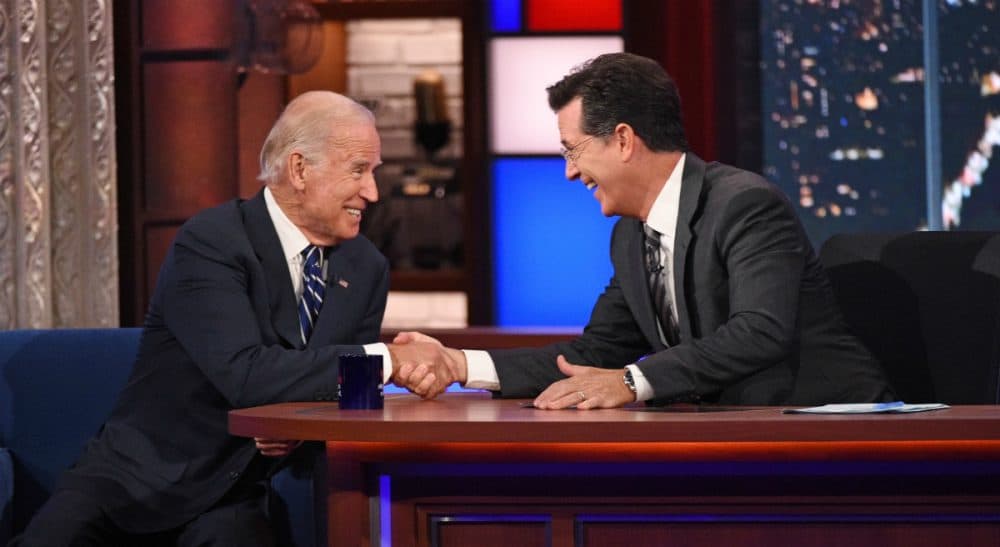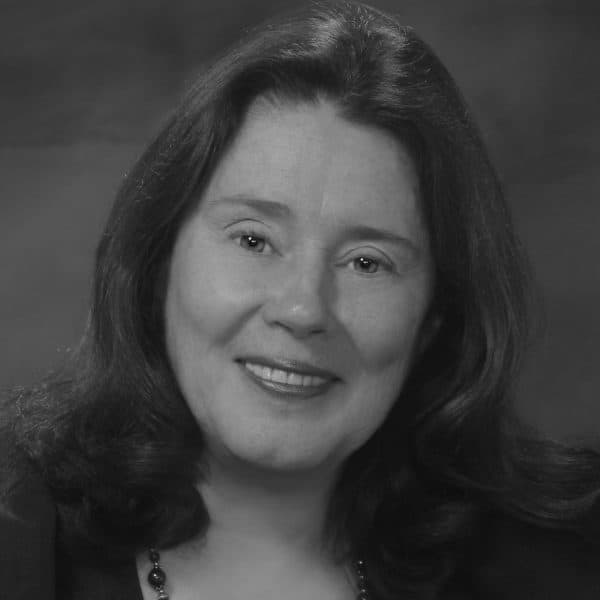Advertisement
Joe Biden, Stephen Colbert And The Politics Of Grief

Politics has a lofty place in the late night entertainment world, especially as the presidential campaign frenzy builds. So it is no surprise that, with the premiere of Stephen Colbert’s “Late Night,” political jokes, as well as real live politicians, were front and center. What was more of a surprise was that genuine, heartfelt feeling got top billing, too.
Last Thursday, at the very midnight hour when sadness and fear can creep into our bedrooms in spite of television's insistent cheer, two men had a conversation — a real one — about grief. In his interview with Vice President Joe Biden (Part 1, Part 2), Colbert cast aside jokes in favor of a poignant, authentic discussion about loss, the loss of a compassionate and committed son as recounted by the father who aches for having lost him. Biden spoke as a father, not as a prospective candidate for the highest office in the nation. He spoke with the feeling and authenticity of one who is carefully finding the words to honor his beloved son and to give meaning to the heartbreak that only a father who has lost a child can know.
Last Thursday, at the very midnight hour when sadness and fear can creep into our bedrooms in spite of television's insistent cheer, two men had a conversation -- a real one -- about grief.
Both Biden and Colbert have traveled in that dark world of grief. Their stories are, by now, well known: Colbert’s father and brothers died in a plane crash when he was a boy. Biden lost his first wife and daughter on the eve of his Senate career.
Perhaps both men, the politician and the prankster, offer a valuable lesson for all of us. We are often at our most inarticulate when confronted with grief, especially the grief of others. We place flowers and stuffed toys at the sites of tragedies because words fail us. Moments of silence in remembrance give us only tiny, suspended fragments of time in which to experience the darkness and quiet of sorrow.
We have lost grief in our world — the long, arduous experience of sitting with the pain of loss; the feeling of estrangement from the ongoing pace of the world around us; the tentative steps back into the world of promise and even joy. Instead, we stuff the pain deep within. As we cut short the rituals of mourning, we lose fluency in the language of grief.
I think often about this. The searing pain of my young brother’s murder 30 years ago bequeathed to me a deep, difficult grief that opened my heart forever. It gave me a surging empathy for the pain of others. I feel it in my daily work as a physician caring for seriously ill children. Through my own grief, I learned to sit with respect, love and even powerful silence with parents whose child has died.
The loss of grief and our rituals around it is the loss of a powerful opportunity for self-compassion and empathy for others.
It was an uncommon television moment, delivered by uncommon men.
Did Biden and Colbert know that grief can transform if held and confronted with gentle compassion? That we can be our best selves when we move toward — not away — from its sharp and difficult edges? That if we open our hearts in that dark terrain we can illuminate a path that will transform us and perhaps the world around us?
It was an uncommon television moment, delivered by uncommon men. I'm grateful for what it revealed not only about Vice President Biden, but about the power of conversations that are authentic and compassionate, no matter how difficult and painful.
I'm grateful for those moments observed in a most unlikely setting, when an encounter with grief did not evoke fear but open-hearted presence and a recognition of our shared humanity.
